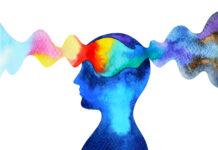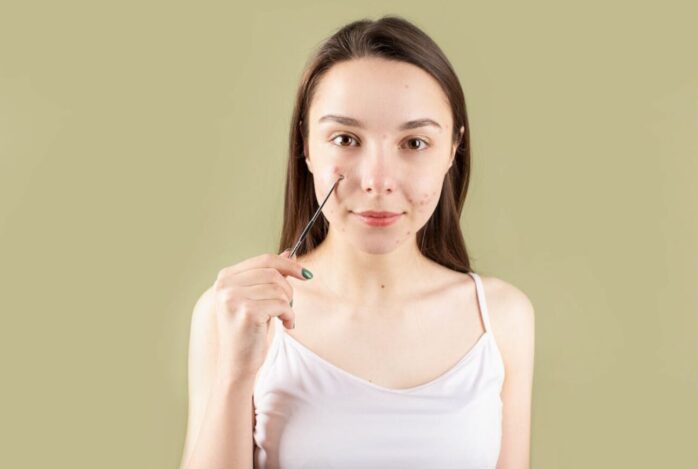
Acne is a common skin condition that affects millions of people worldwide. Acne can have a significant effect on someone’s mental and emotional health in addition to its physical effects. This article explores the psychological effects of acne and offers coping mechanisms to assist people in overcoming this trying situation.
Psychological effects of acne
Self-esteem and physical image can be greatly affected by acne. Visible acne lesions might evoke feelings of guilt, embarrassment, and self-consciousness. Aversion to social situations, social disengagement, and a general decline in quality of life can all be results of these negative emotions.
Distress brought on by acne can also lead to psychological disorders like anxiety and despair. According to studies demonstrating a strong correlation between these two ailments, acne sufferers are more likely to have depressive symptoms and anxiety disorders than others.
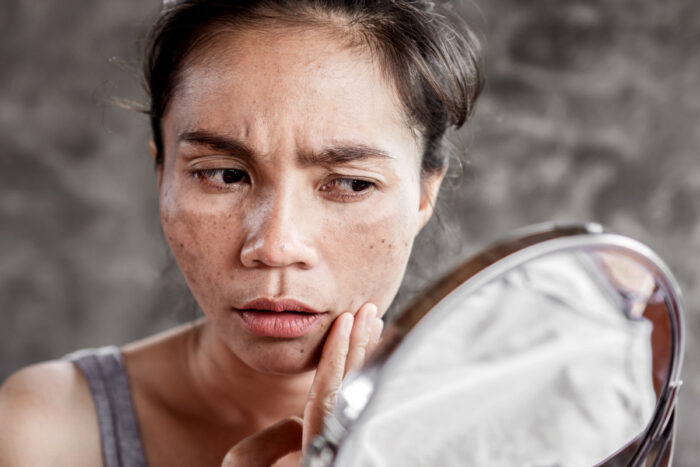
Seeking professional support
Individuals who are experiencing psychological distress due to acne must seek professional assistance. Specialists in dermatology and mental health can offer helpful advice and treatment options. Dermatologists may also suggest specific skincare products to treat the condition of the skin, such as Skinceuticals C E Ferulic. Vitamins C, E, and ferulic acid are combined in this antioxidant serum. While vitamin E offers antioxidant defence, vitamin C enhances skin brightness and encourages the production of collagen. The stability and effectiveness of the formula are improved by ferulic acid. People can enhance the look of their skin and even increase their confidence by using such products.
Developing a skincare routine
Setting up a regular skincare routine is essential for managing acne and addressing its psychological impact. By incorporating key steps and selecting appropriate products, you can promote healthier skin and reduce the occurrence of breakouts.
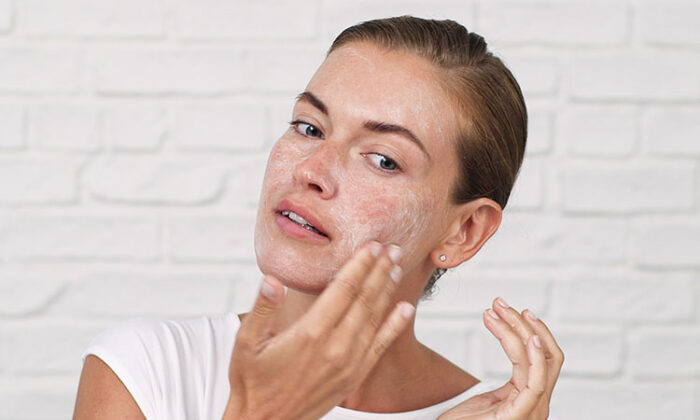
Exfoliation:
Regular exfoliation is a crucial step in any skincare routine. It helps remove dead skin cells, unclogs pores, and promotes cell turnover. However, it’s important to choose gentle exfoliants that won’t irritate or damage the skin. Chemical exfoliants like AHAs (alpha hydroxy acids) or BHAs (beta hydroxy acids) are often recommended for acne-prone skin as they can effectively unclog pores and reduce inflammation.
Hydration:
Hydrating the skin is vital to maintain its moisture balance and prevent excessive dryness. Look for non-comedogenic moisturizers that won’t clog pores. Ingredients like hyaluronic acid or ceramides can help restore and retain moisture in the skin, promoting a healthy and supple complexion.
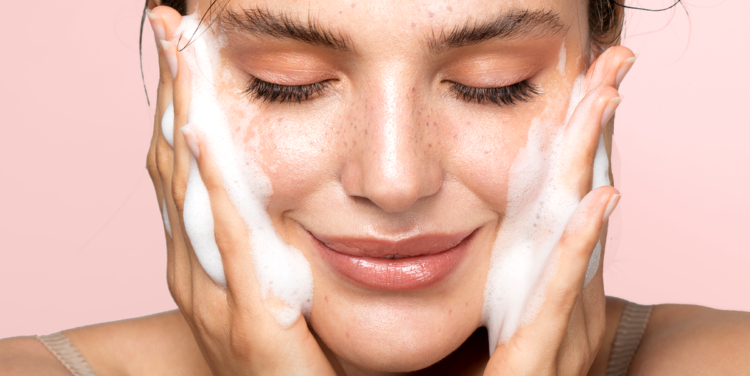
Cleansing:
Gentle cleansing is essential to remove dirt, oil, and impurities from the skin. Opt for a mild, non-abrasive cleanser specifically formulated for acne-prone skin. Avoid harsh cleansers that strip the skin of its natural oils, as this can lead to increased oil production and potential breakouts.
Product Selection:
Choosing the right skincare products for acne-prone skin is crucial. Look for labels that indicate “non-comedogenic” or “acne-fighting” to ensure the products won’t clog pores or exacerbate acne. Avoid heavy oils, fragrances, and potentially irritating ingredients. It’s also advisable to patch test new products before incorporating them into your routine to check for any adverse reactions.
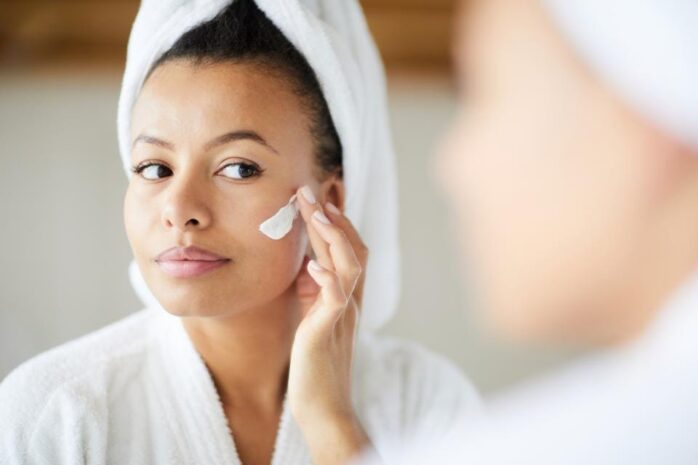
Practising self-care
Self-care is essential for maintaining emotional well-being, and it plays a crucial role in coping with the emotional effects of acne. By engaging in activities that promote relaxation, happiness, and self-awareness, individuals can cultivate a positive outlook and reduce stress levels.
Finding Time for Relaxation:
In the midst of busy schedules and daily pressures, it’s important to carve out time for relaxation. This can involve activities such as meditation, deep breathing exercises, or taking a warm bath. These moments of relaxation allow individuals to recharge, reduce stress, and promote a sense of calm.

Taking up a Hobby:
Engaging in a hobby can provide a much-needed escape from the challenges of dealing with acne. Whether it’s painting, playing an instrument, gardening, or any other activity that brings joy, hobbies offer a creative outlet and a sense of accomplishment. They can help divert attention away from negative thoughts and provide a healthy distraction.
Cultivating Awareness:
Practicing self-awareness involves paying attention to one’s thoughts, emotions, and physical sensations. This mindfulness practice can help individuals better understand their reactions to acne and develop a more compassionate and accepting attitude towards themselves. Techniques like journaling, meditation, or therapy can aid in this process.
Participating in Joyful and Fulfilling Pursuits:
Engaging in activities that bring happiness and fulfillment is an important aspect of self-care. This could include spending time with loved ones, pursuing hobbies, traveling, or indulging in hobbies. By prioritizing activities that bring joy, individuals can improve their overall well-being and resilience.

Seeking social support
Dealing with the challenges of acne can be overwhelming, but seeking social support can provide comfort, guidance, and a sense of belonging. Connecting with individuals who have gone through similar struggles can be empowering and offer valuable insights. This can be done through online or offline support groups, as well as seeking support from trusted friends and family members.
Joining Support Groups:
Online and offline support groups can serve as a valuable resource for individuals dealing with acne. These groups provide a platform to connect with others who have had similar experiences, exchange stories, share coping mechanisms, and offer support. Being part of a supportive community can reduce feelings of isolation and provide a sense of belonging.

Exchanging Experiences:
Engaging in conversations with individuals who have dealt with acne can be reassuring and enlightening. Sharing personal experiences and hearing about others’ journeys can provide validation and perspective. It allows individuals to gain insights into different treatment options, self-care practices, and strategies for managing the emotional impact of acne.
Dependable Friends and Family:
Seeking support from trusted friends and family members can also play a significant role in managing the challenges of acne. Opening up to loved ones about your struggles can foster a strong support system. They can provide a listening ear, offer encouragement, and provide emotional support during difficult times.
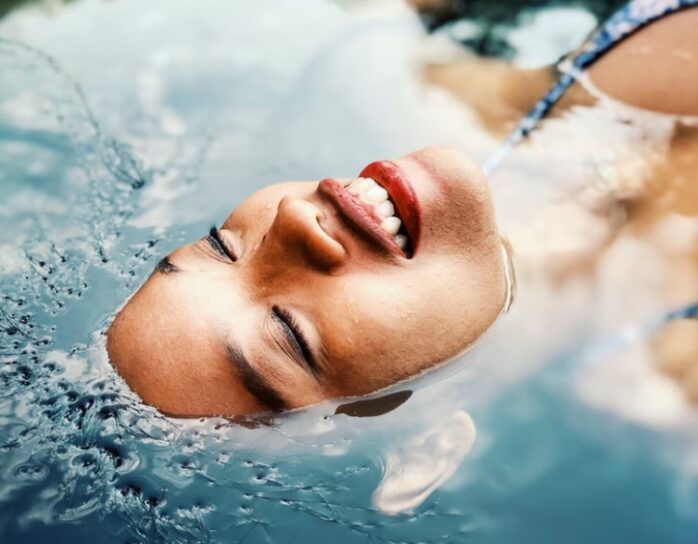
Conclusion
Along with affecting a person’s appearance, acne can also have an impact on their mental and emotional health, but don’t worry, there is hope! In order to lessen acne’s damaging emotional impacts, it is essential to understand its psychological repercussions. Acne’s psychological effects can be overcome by many. Professional advice, a skincare routine, self-care, and social support can help you change. Remember, it is about more than just improving your skin’s appearance with topical treatments. Take charge, believe in yourself, and succeed in overcoming the challenges.



